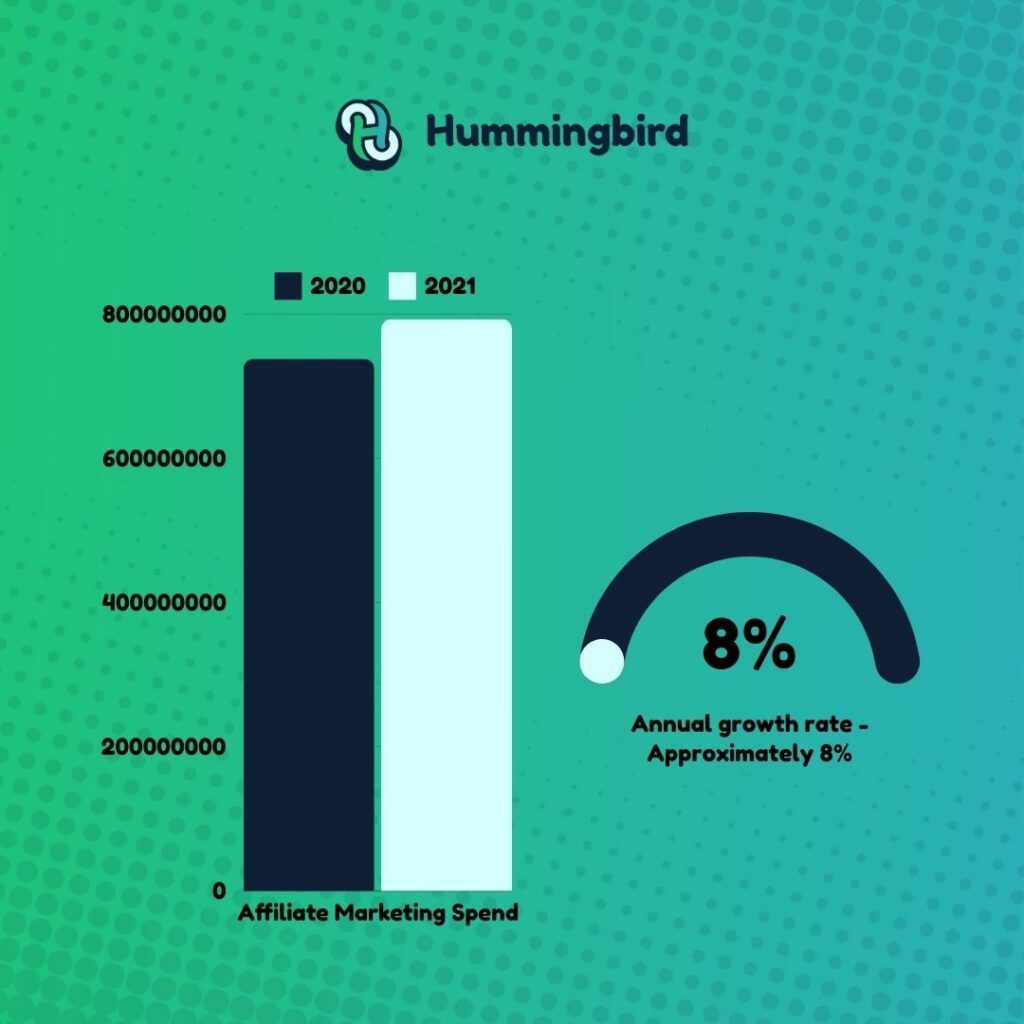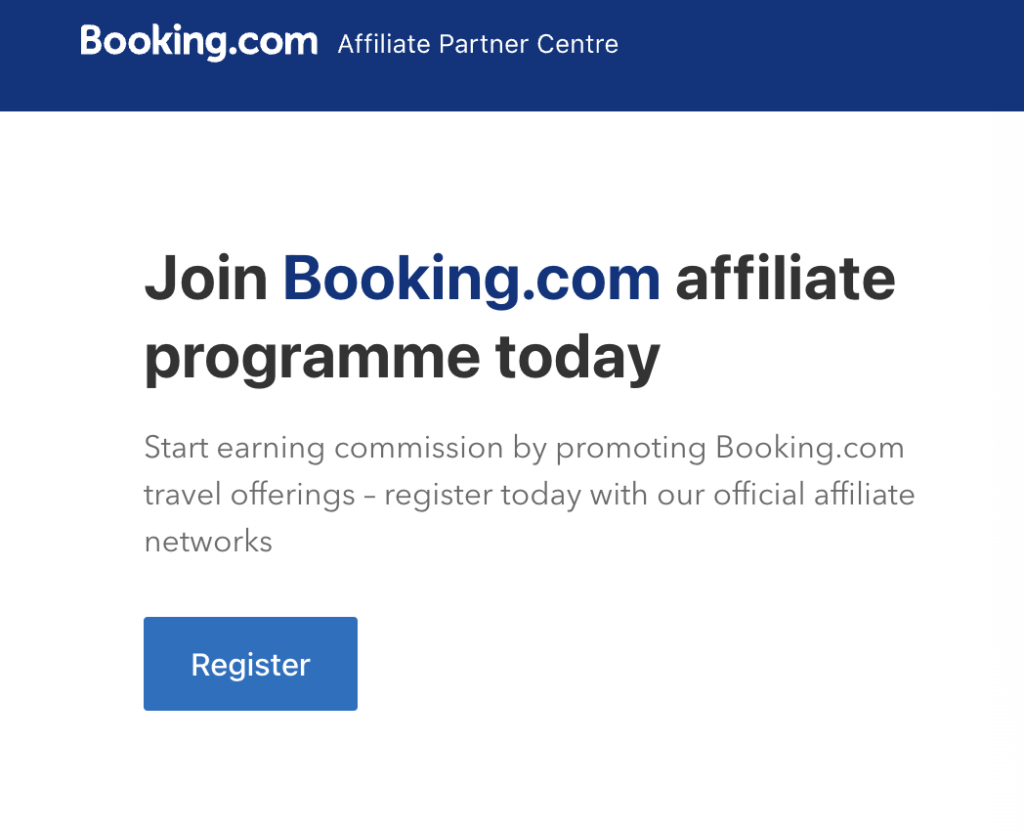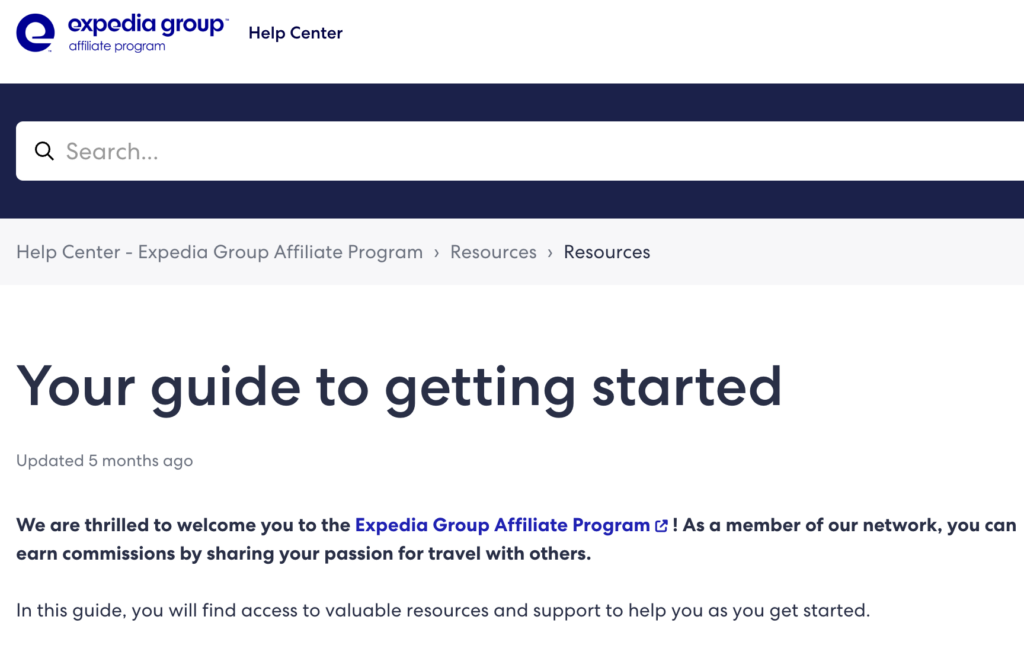Standing out amidst the competition in the travel industry requires many innovative strategies. Enter affiliate marketing, a game-changer in how travel brands connect with their audience.
Influencers, content creators, and niche websites – this is who travel brands need to partner with to boost their brand visibility exponentially. Affiliate marketing plays a crucial role in this partnership by providing a structured way to compensate these partners for promoting your travel brand.
What sets affiliate marketing apart is its cost-effectiveness. Unlike traditional advertising, brands pay commissions only upon desired actions, ensuring optimal resource allocation.
Let’s get into it! How can affiliate marketing transform travel brands?
Unveiling the Power of Affiliate Marketing for Travel Businesses
- Discover the goldmine that Affiliate Marketing can be for travel businesses.
Step 1: Understanding the Concept of Affiliate Marketing
When we talk about Affiliate Marketing, we refer to a simple system that could quickly multiply conversions for your travel business. It’s a performance-based marketing strategy where individuals or companies (affiliates) promote a company’s product or service and earn a commission for every successful sale or service redemption. It’s simple, but the outcome can be game-changing.
To put it into context for travel businesses, you could partner with a travel blogger who promotes your tour packages or hotel services on their blog or social media platforms. Whenever one of the blogger’s followers clicks on the promoted link and completes a transaction with your business, the blogger earns a commission.
Win-Win Situation
This approach creates a win-win situation for both parties. Your business gets increased exposure and potential sales while the affiliate earns from the commission. This can be a cost-effective marketing strategy since the affiliate is only paid when a transaction is made.
Step 2: Why Affiliate Marketing is a Goldmine for Travel Businesses
Affiliate Marketing can be particularly lucrative for travel businesses, thanks to the expansive and dynamic nature of the industry. Many passionate travel enthusiasts can make effective and trusted affiliates. They capture vivid travel experiences and influence their audience’s travel decisions, which can directly elevate your sales.
The spending in the UK on affiliate marketing from 2018 to 2021 paints a compelling picture. In 2021 alone, £793 million was invested into affiliate marketing, reflecting a notable increase from £738 million the previous year, with an annual growth rate of approximately 8%.

The significant increase reflects its cost-effectiveness and ability to reach niche audiences through trusted influencers and specialised websites. This should empower travel brands to optimise their marketing budgets and enhance credibility.
A Burst of Exposure
With the right affiliates, your business can reach a broader audience. These affiliates may have followers that your current marketing efforts have yet to be able to reach, thus offering a more extensive potential customer base.
Step 3: How Top Travel Businesses are Leveraging Affiliate Marketing
If a travel business specialising in luxury cruises partners with a luxury travel blogger or influencer with a substantial follower base, bookings could increase significantly. Travel businesses can reach their ideal customer demographic through these targeted partnerships more efficiently and effectively.
Top-tier travel businesses are reaping the benefits of affiliate marketing by forging strategic partnerships. Brands like Booking.com and Expedia have affiliate programmes, so why not join them?


Key Considerations in Implementing Affiliate Marketing for Your Travel Business
- The importance of choosing the right affiliate programme for your travel business.
- Building and nurturing strong affiliate relationships are crucial.
- Constant tracking and optimisation of your affiliate marketing efforts will drive results.
Choosing the Right Affiliate Programme
Affiliate marketing allows your travel business to tap into an existing customer base and drive traffic to your site. But not all affiliate programmes are equal: knowing what to look for is essential. Some key factors to consider are commission rates, payment terms, and marketing support.
Recognising High-Value Affiliate Programmes
High-value affiliate programmes offer competitive commission rates and provide substantial marketing assistance. A programme that values its affiliates will support them with marketing materials and guidance instead of leaving them to fend for themselves. Affiliates should be viewed as partners and treated with respect.
Payment Terms That Work for You
Payment terms are critical when planning your revenue trajectory and cash flow. Ensure the terms suit your business, especially regarding the frequency and mode of payments. Some programmes have monthly payouts, while others pay quarterly or annually.
Building Strong Affiliate Relationships
Relationships are the heartbeat of affiliate marketing. Cultivating them guarantees sustainability and profitability.
Effective Communication
Effective communication encompasses understanding and respecting your affiliate’s needs, ensuring they’re satisfied with the relationship, and informing them of upcoming changes or offers.
Providing Incentives
Providing incentives is an excellent way of encouraging your affiliates to perform better. Potential rewards could be higher commission rates, bonuses, or exclusive deals.
A good commission structure should be competitive. You can also use different tiers to reward affiliates based on their revenue.
Another way to reward your high-performing affiliates is to offer them bonuses. Whether that’s a cash bonus, a gift card or a specific prize tailored to your travel brand – they all provide great incentives to perform well.
Sometimes, it’s not about the cash bonuses. If an affiliate genuinely believes in your travel brand, they want recognition and appreciation for their efforts. This can be shown differently, like a personalised email or a thank you note. It’s essential to make affiliates feel like partners.
Tracking and Optimising Your Affiliate Marketing Efforts
Like any other marketing strategy, tracking and optimisation are crucial elements of your affiliate marketing campaigns.
Leveraging Tracking Technology
Tracking technology lets you monitor your affiliate’s performance and appreciate where your traffic and conversions are coming from. Here’s how to track your affiliate marketing efforts:
- Set Clear Goals: Before you start monitoring anything, define your goals. These could be related to sales, leads, clicks, or other key performance indicators (KPIs).
- Use Tracking Links: Tracking links (also known as affiliate links) are URLs that contain unique identifiers, allowing you to monitor clicks, conversions, and other metrics. Most affiliate networks provide built-in tracking capabilities, but URL shorteners like Bitly can also be used.
- Implement Conversion Tracking: Set up conversion tracking to measure your affiliate campaigns’ effectiveness. This involves placing a tracking pixel or code snippet on the confirmation page that visitors see after completing a desired action (e.g., making a purchase or signing up). Many affiliate networks offer conversion tracking tools, or you can use third-party solutions like Google Analytics.
- Analyse Performance Metrics: Regularly monitor key performance metrics such as clicks, conversions, conversion rate, average order value, revenue generated, and ROI. This data will help you identify what’s working well and what needs improvement.
- Track Customer Journey: Understand the entire customer journey, from the initial click on your affiliate link to the final conversion. This involves tracking interactions across multiple touchpoints and channels. Analytics tools like Mixpanel can provide insights into user behaviour and help you optimise your marketing funnel.
- Use Affiliate Marketing Platforms: Consider using affiliate marketing platforms such as CJ Affiliate. These platforms provide comprehensive tracking and reporting capabilities, making managing your affiliate campaigns and tracking performance easier.
- Stay Organised: Keep detailed records of your affiliate marketing activities, including campaign details, tracking links, expenses, revenue, and performance metrics. Use spreadsheets or affiliate management software to stay organised and track your progress over time.
Optimisation Based on Real-Time Data
Finally, optimisation based on real-time data allows you to make informed decisions about where to focus your efforts. This could be identifying your highest-performing affiliates and supporting them further or recognising where there might be areas to grow. You can consistently enhance your affiliate marketing programme by keeping a keen eye on performance data.
With solid foundations in place, your travel business can make the most of affiliate marketing, unlocking new revenue streams and growing your customer base.
Turning Your Travel Business into a Money-Making Machine
- Comprehend what it takes to build a money-making affiliate marketing strategy.
- Learn actionable techniques to drive up your affiliate marketing returns.
How to Create a Profitable Affiliate Marketing Strategy
Timing and understanding your audience’s preferences are pivotal when you want your travel business to generate revenue through affiliate marketing. A keen market analysis can inform your strategy. Track these vital factors: the popularity of specific travel destinations, the demographics of your consumers, and their preferred travel seasons. This information will help you choose the right affiliates to drive traffic to your website and boost your profitability.
Continuous monitoring of your affiliate marketing strategy is also crucial. Use analytics to measure your success rate and adjust your plan as needed. Evaluation tools will help you assess the performance of your affiliates and find ways to optimise your actions for higher returns.
Tips and Tricks to Maximise Your Affiliate Marketing Earnings
Understanding the dynamics of affiliate marketing can significantly enhance your earnings. Here are a few tips and tricks to consider.
Consider the Quality over Quantity Approach
Opting for many affiliate programmes does not necessarily lead to high returns. Prioritise quality over quantity. Choose affiliates that offer high returns and correlate with your brand and customers’ preferences. Selective partnerships will ensure meaningful engagements and positively reflect on your earnings.
Engage Consumers with Compelling Content
Making the most of your affiliate marketing entails more than just presenting links. Capture your audience’s attention with engaging content. Leverage storytelling to connect memorable experiences and paint an enticing picture for your potential travellers. A convincing narrative can influence purchasing decisions and drive your affiliate marketing earnings.
Invest in SEO
Optimising your website for affiliate marketing involves:
- Enhancing user experience.
- Increasing search engine rankings through SEO tactics.
- Generating targeted traffic by optimising content for relevant keywords.
This optimisation also includes improving page load times, ensuring mobile compatibility, and strategically placing clear call-to-actions (CTAs) to encourage conversions. You can maximise engagement and ultimately increase affiliate sales and commissions by providing valuable content and continuously testing and optimising various website elements, such as headlines and CTAs.
Remember, maximising your affiliate marketing earnings does not occur overnight. It requires a sound strategy, constant monitoring, and a willingness to adapt. When executed correctly, it’s a journey that can turn your travel enterprise into a lucrative business.
Benefits of Affiliate Marketing for the Travel Niche
- Widen your brand recognition
- Economical yet efficient marketing
- Cultivating customer trust and allegiance
Increased Brand Visibility
Affiliate marketing amplifies exposure, getting you noticed by a wider audience.
By partnering with well-established players in the travel space, you can tap into their audience base. Think of it this way: Every blog post, social media mention, or e-newsletter featuring your brand opens the door to potential customers who might not have even realised your brand existed. This linkage provides fresh leads, drives visibility, and subsequently escalates your brand prestige.
The Virality Factor
Word of mouth can be your strongest ally.
The more influencers or travel companions you partner with, the higher your chances of going viral. Given that these affiliates have a base of dedicated followers who trust their recommendations, a simple mention of your brand could stimulate an upsurge in engagement, creating a ripple effect of brand visibility.
Cost-Effective Marketing Strategy
Save money without sacrificing the results.
The beauty of affiliate marketing lies in its cost-effectiveness. Here, you only pay when a sale is made or a specified action is completed. Unlike traditional advertising methodologies, where you sink hefty sums without guaranteeing returns, affiliate marketing adheres to the classic business mantra, “value for money”.
Enhanced Customer Trust and Loyalty
Gain consumers’ trust and lay the foundation for everlasting loyalty.
Harnessing the trust affiliates have cultivated within their community can greatly enhance your brand’s credibility. When renowned influencers or even small niche travel bloggers who have a strong bond with their audience recommend your brand, it automatically lays down a trust foundation.
The Loyalty Advantage
Cherish loyal customers who are your surest bet for stable revenue and brand ambassadors.
Trust introduces the prospect of customer loyalty. Loyal customers have a higher customer lifetime value (CLV), meaning that over time, they will contribute more revenue to your business than new customers. These brand loyalists are more likely to choose your services over competitors and play a significant role in bringing in new customers by becoming unpaid brand ambassadors, creating a continuous, beneficial cycle.
Conclusion
By understanding the nuances of tracking systems, commission structures, and relationships with affiliates, your travel business can confidently navigate affiliate marketing waters.
Remember: it’s all about offering the right product to the right audience at the right time. Harnessing the power of affiliates enables your business to increase its reach without scaling up advertising costs.
Now, take a step forward into this world of potential partnerships. Pinpoint the affiliates that align with your brand and audience. Begin fostering these relationships, and you’ll soon be on your way to broadening your customer base and boosting your revenue.
Want to learn more about travel marketing? You can read more blog posts like this here and learn more about how we can help travel brands like yours!



